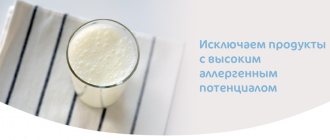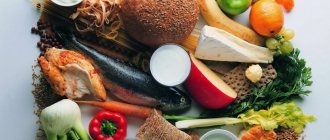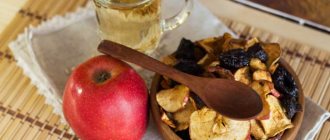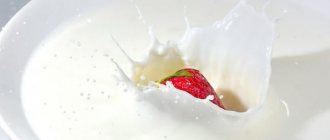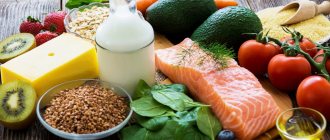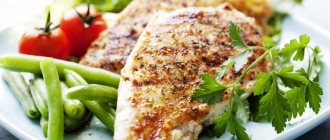In this article we will talk about how a woman during lactation can adjust her diet to lose weight. However, it should immediately be noted that all of the following is just food for thought. You need to select a weight loss system only together with a specialist. The Doctor Bormenthal clinic uses its own patented method of losing weight and maintaining results, with the help of which more than half a million people have already lost weight. You can learn more about the methodology here -.
Basic rules of nutrition during lactation
After the birth of the baby, the mother must adhere to a special menu so that her breast milk becomes quite healthy and nutritious, but does not contain substances harmful to the baby. The speed of recovery of her body and the state of health of the child depend on how correct the mother’s nutrition is. The baby's intestinal microflora takes at least a month to form. During this period, it is especially important to carefully select products.
Breast milk should not contain anything that can disrupt the functioning of the fragile gastrointestinal tract or cause an allergic reaction. Calorie content is important for the mother herself, otherwise she will gain even more excess weight.
When breastfeeding, be sure to consume foods that contain the required amount of nutrients. In addition to proteins, fats, and carbohydrates, you need calcium, magnesium, vitamins, and fatty acids.
The calorie norm for nursing mothers is 2600-2700 per day. This is more than the daily caloric intake recommended for people losing weight. But milk production is a fairly energy-intensive process, so all 2,700 calories will be consumed and will not remain in the body as fat deposits. But you should not exceed the specified norm.
You should accept that losing weight during lactation will not be fast. At this time, strict diets and fasting days are prohibited. They may not deteriorate the quality of milk, even lead to its premature disappearance.
It is not difficult to create a menu for a nursing mother. It generally corresponds to the principles of proper nutrition, but there are some peculiarities. You must follow the rules:
- exclude alcohol and tobacco;
- refuse pronounced flavoring additives, seasonings, dishes with garlic or raw onions;
- exclude products of low quality and questionable freshness;
- drink more fluids - water, weak tea, homemade compotes;
- eat small meals often.
It is important to immediately exclude foods that can cause allergies. As the baby grows, they should be gradually introduced into the diet and observed to see if a reaction occurs. These products include:
- vegetables and fruits of bright orange color;
- citruses;
- nuts;
- egg yolks;
- seafood;
- chocolate;
- honey.
After the birth of the baby, a mother who is responsible for breastfeeding includes a minimum of foods in her diet. Preference is given to completely hypoallergenic natural food. A month later, new products begin to be introduced. This is done with extreme caution. The first to introduce dishes without chemical additives and allergens. First you need to eat a little of the new product and watch the baby’s reaction for a day. If he does not have any digestive problems or skin rashes, he should eat the same product in one regular serving for 3-4 days. If after this no problems are found, we can assume that the product has been successfully introduced into the diet and proceed with the introduction of the next one. If a negative reaction occurs, you need to postpone introducing the product for about a month, then try again.
After a caesarean section, a woman must adhere to the menu prescribed by the doctor. This is important for her recovery after surgery.
General rules
Breastfeeding is a natural way of feeding your baby.
Human milk is an optimal product, highly digestible with a balanced content of all nutritional nutrients, including biologically active substances that protect the immature child’s body from the effects of adverse factors. However, the composition of milk is largely determined by the mother's diet. Therefore, a woman’s nutrition during breastfeeding is the most important factor in the child’s health, since almost everything that a woman eats is present in milk in one form or another. Unfortunately, there is no single view on nutrition during breastfeeding. First of all, approaches to nutrition for nursing mothers in post-Soviet states and other civilized countries vary significantly, and this especially applies to various dietary restrictions/numerous prohibitions that can be found in the CIS countries.
Unlike such countries, there are practically no restrictions on the diet of a nursing woman in most countries of the world. A nursing mother, if desired, can eat almost any food in reasonable quantities. After all, a woman herself can monitor the connection between the consumption of certain products and the well-being of the child. And if she sees that your child’s health is normal, then why limit herself, and if the child has any problems, then she herself will adjust her diet. So where is the truth? Let's see what Dr. Komarovsky, a recognized authority in most families with children, writes about this.
First of all, according to Komarovsky, the diet of nursing mothers should be as varied as possible and include cereals and pasta, fermented milk products without additives, cottage cheese, dietary types of meat and fish, vegetables, fruits, and nuts. The main principle of drawing up a diet is its balance, that is, it must contain all the necessary components needed by the child - proteins, fats, carbohydrates, vitamins (C, D, group B), minerals (calcium, iodine, iron, magnesium), unsaturated fatty acids ( omega-3 and omega-6 ).
The calorie content of a woman’s daily diet in the first six months should be about 2700-2800 kcal. Reducing caloric intake is not recommended, as this is dangerous for the child. You will lose weight and regain your figure later. Insufficient nutrition of the mother leads to insufficient milk production, accordingly, the child will not receive enough nutritional nutrients. In this case, the baby develops excessively watery stools that are close in consistency to water, the baby loses the rate of weight gain, the baby is lethargic, sleeps a lot, the urine acquires a pungent odor, and signs of dehydration (recession of the fontanel).
Many mothers are concerned about the issue of fat content in their diet. Fats are definitely necessary and important. However, a “golden mean” is needed here. You should not completely exclude or “lean on” sour cream, cream, butter in order to increase the fat content of milk, but their use should be limited. Preference should be given to vegetable fats (linseed, olive, sunflower oil). But what is recommended to be excluded from the diet is fatty meat, fatty sausages, trans fats, animal/cooking fat, mayonnaise, margarine.
It is also worth remembering that cooking food by frying is accompanied by the addition of fat, so it is better to limit fried foods or consume them in small quantities.
A relatively strict diet during breastfeeding according to Komarovsky should only be in the first 1-2 months after birth, since the woman’s body has not yet fully recovered, the child continues to develop digestion and his reaction to the inclusion of certain foods in the diet is unknown. Therefore, in the first month the diet should be strict, which you can read about in the article “Mom’s Diet While Breastfeeding”, and then new foods should be carefully introduced into the diet, gradually expanding it.
This is especially true for vegetables, which during this period must be present in the diet, but it is better to consume them boiled or baked, as well as products with a high allergenic potential (whole cow/goat milk, cocoa and coffee). You should also more closely monitor the diet until the child is three months old, since during this period the child is most often susceptible to colic.
When choosing products, preference should be given to fresh natural products, avoiding products containing GMOs, dyes, preservatives, and flavor enhancers. Therefore, you should not include semi-finished products, fast food products, or canned food in your diet.
As for restrictions, according to Komarovsky, the nutrition of a nursing mother should exclude:
- Products that change the taste of milk (spicy, salty, sour and smoked products) and its smell (garlic, onion).
- Potentially highly allergenic foods (sweets, citrus fruits, chicken eggs, whole milk, red and yellow vegetables/fruits, chocolate, caffeine-containing drinks).
- Legumes and white cabbage, black bread, pickled vegetables, bananas, grapes, kvass, cucumbers, confectionery products that cause intestinal upset in a child ( flatulence , diarrhea ).
Also, Komarovsky believes that the basis for preparing a woman’s diet during breastfeeding should be, first of all, common sense and monitoring the child’s condition, as well as monitoring the reaction to each new product. The list of foods in the diet can vary significantly and depends mainly on the newborn’s individual reaction to the foods. The mother herself can decide how best to eat, observing the reaction and condition of her baby, who, with his behavior, condition of the intestines and skin, will “tell” her to refuse feeding in cases where the taste of milk has changed and he does not like it.
To do this, you can keep a food diary in which the mother displays her menu, newly introduced foods into the diet and the baby’s reaction. If you are in doubt about any product (it is possible or not), eat a little and monitor the child’s reaction. If a rash does not appear, stool and sleep have not changed - introduce the product into the diet, but not immediately in large quantities, but gradually, increasing its content over 2-3 days. This algorithm for introducing a new product is important because there is a time lag between the use of the product, its quantity and the manifestation of an allergic reaction. Keeping a diary and carefully monitoring the child’s reaction to newly introduced foods will help timely and accurately determine the allergenic factor. If a rash or gastrointestinal upset appears, the cause must be sought in a new product introduced recently.
Equally important for sufficient and prolonged lactation is the drinking regime. The volume of liquid consumed should be at least 1.5 l/day, mainly in the form of still table water, compotes, fruit drinks, and green tea. It is recommended to drink 200 ml of water 10-15 minutes before feeding the baby. You should not consume fluids in excess of the norm, since this can cause excess milk production and stagnation ( lactostasis ), and also increases the load on the kidneys.
Advantages and disadvantages
When a woman adheres to the correct diet for the lactation period, this has a beneficial effect on her health. By excluding fried, fatty, canned, alcohol, store-bought baked goods and fast food from the diet, the young mother gains the experience of healthy eating and the opportunity to personally evaluate the benefits of PN. There are only advantages to feeding a nursing mother. But some find certain shortcomings in it.
Disadvantages include a limited menu, a ban on familiar dishes with a strong taste (spicy, salty, sweet, sour). When feeding, it is advisable to choose food that tastes as close to neutral as possible. Many women quickly begin to miss dishes with flavor enhancers, which include sugar, salt, pepper, and garlic. Another disadvantage is the inability to go on a strict diet to quickly lose weight. For these reasons, women often stop breastfeeding after just a couple of months.
Amount of food
Now you have to eat for two, otherwise there won’t be enough milk... Sounds familiar, doesn’t it? Guided by the best intentions and their experience of motherhood, our mothers and grandmothers simply insist on abundant nutrition for the nursing mother. Does breast milk production really depend directly on the amount of food a woman consumes?
To date, a huge number of studies have been conducted that clearly indicate that the amount of milk is in no way related to the amount of food consumed by a nursing mother. All the “excess” eaten will be carefully deposited by the mother’s body on the sides (and not only) of the woman herself.
According to data obtained during research, a baby, regardless of age, “consumes” no more than 300-500 Kcal per day. To take this into account in the mother’s diet, you can introduce an extra snack, for example, a second light breakfast or afternoon snack. The main thing is to observe moderation and remember that after childbirth, the female body goes through a complex recovery process, including hormonal balance, and excess weight that appears due to poor nutrition can create serious additional stress and problems.
Diet of a nursing mother by month
The nutrition of a nursing mother depends on the age of the child. In the first months it is extremely limited. Over time, new products are gradually introduced and the baby’s reaction is checked. If, when introducing a new product, a child experiences digestive problems or allergic rashes, then it is too early to add this product to the mother’s diet. It is worth noting that if during pregnancy a woman reduces to a minimum the consumption of foods that can cause allergies, then the risk of a reaction in the baby is minimal. But caution still needs to be exercised.
It is important to remember that allergies are quite dangerous. It usually manifests itself as skin rashes. But sometimes an allergen causes swelling, peeling of the skin, inflammation of the eyes, etc. It is necessary to carefully monitor the baby’s condition. The more carefully new menu items are introduced, the less likely it is that the child will suffer from allergies in the future.
Menu planning in the first 10 days requires special attention. During this period, the baby’s gastrointestinal tract adapts to a new type of nutrition, which means the milk should be sufficiently nourishing and absolutely safe for the intestines. There should be nothing in mom’s food that can cause constipation, diarrhea, or gas accumulation. You can eat porridge, light soups, baked vegetables and fruits, low-fat dairy products. Drink weak tea, compote, clean water.
After the first 10 days, boiled dietary meat and fish are added to the menu. Eggs are also added. Proteins are eaten without any restrictions, and yolks are eaten at first, 1 per week, then gradually increase their consumption. It should be remembered that the yolk is a very valuable product, but young children often have an allergic reaction to it.
From the second month, you can gradually begin to eat raw vegetables and fruits. You should avoid anything that has a bright red or orange color - pumpkin, carrots, tomatoes, citrus fruits, peaches, red apples. It is better to introduce baked zucchini, green apples, and broccoli first. First, we introduce everything that is as safe as possible, then we introduce the remaining products one by one. When preparing dishes, it is necessary to remember which products have already been introduced. For example, if tomatoes have not yet been introduced into the mother’s menu, she should not eat borscht and other dishes with the addition of tomato paste.
From the fourth month, products are added that can change the taste of milk. At this age, the child is no longer so picky; new “notes” in milk will not frighten him. You can add onions, garlic, spices. It is worth trying to introduce honey in small portions. It is beneficial for mother and child, but is a strong allergen. Honey must be administered with extreme caution.
Starting from the sixth month, legumes, seafood, pork and veal are introduced. Cooking should be continued without frying, using boiling or baking.
To prevent the breastfeeding process from becoming a real torture for mom, you can carefully introduce your favorite foods. But in minimal doses and not those that are clearly harmful. For example, if a woman loves sweets, it is worth trying to introduce homemade cakes, dried fruits, and non-allergenic raw fruits in the second month. Then you can try store-bought sweets, but a little at a time, and closely monitor your baby’s reaction.
When choosing a menu, you need to rely on the advice of pediatricians and nutritionists. You can get information from “mom’s” forums and study mothers’ reviews on the use of products, but it should not be the main one. The main thing is individual recommendations from doctors.
Proper nutrition for a nursing mother
Holidays are an occasion for feasting. What should a nursing mother remember during the holidays?
- It’s better not to try a completely new product or a dish made from it.
- No more than one glass of dry wine per holiday; drink plenty of plain water at the holiday table.
- Don't forget to pump on time.
- If the child does not have colic, then everything is possible, or almost everything, if you are familiar with all the products.
- If a child suffers from colic, we advise you to exclude sour cream, mayonnaise, spicy, pickled, fatty foods, grapes, and sweet carbonated drinks.
- If your baby is prone to rashes, exclude tropical fruits, strawberries, raspberries, red caviar, fish, seafood, and smoked meats.
Share on social media networks
Features of the drinking regime
During breastfeeding, a woman’s body loses a lot of fluid. To make up for its loss, you need to drink plenty of fluids. But if you drink too much, the milk may become less fatty. This is undesirable, especially at first, when the baby cannot suck for a long time. Therefore, when drinking, you need to choose an individual norm so as not to lead yourself to dehydration and not spoil the quality of the milk.
The amount of milk produced is not affected by the amount of liquid you drink. You shouldn’t constantly drink because you “can’t.” Moreover, there is no need to drink liters of sweet tea and milk. Contrary to popular belief, neither sweet tea nor milk will speed up the lactation process. But such drinks will add some extra pounds to your figure.
An average person needs to drink at least 800 mg of water per day. Doctors recommend drinking at least 1 liter, but no more than 2. With breastfeeding, milk production takes from one to one and a half liters of fluid. A nursing woman needs to consume at least 2.5 liters of fluid (including liquid meals and all drinks). It is worth noting that nature provides everything to preserve the health of mother and baby. A nursing woman often experiences a feeling of thirst; it does not allow her to drink less than she needs. The main thing is not to ignore your body’s signals, always have a bottle of clean water with you, and drink whenever you want.
When choosing between sugary drinks and water, it is better to choose water. If your skin feels dry, then you need to drink more water and don’t forget about moisturizing creams.
Eliminate from diet
All advice from a famous pediatrician is advisory in nature, however, in matters of nutrition, the doctor adheres to a position of perseverance. First of all, foods that provoke allergies are excluded: citrus fruits, chocolate, strawberries, eggs, seafood. The mother, especially in the first days and weeks, should carefully monitor the baby’s reaction to the new product she has eaten. If you have doubts about any product, the doctor advises you to first eat a small amount of it and, depending on the child’s reaction, decide whether it is worth including it in the diet in the future.
All products that can cause milk to change its taste and smell and become unpleasant to the baby are excluded from the diet. This group includes sour, salty, spicy dishes, and strong-smelling seasonings. A number of foods (legumes, cabbage, carbonated drinks) have a bad effect on the baby's intestines. Their consumption can increase gas production and in some cases cause diarrhea.
To digest fatty foods, the body requires additional effort; with increased fat content of breast milk, it is difficult for the baby to suck it out, and for the mother to express it. Therefore, the doctor does not recommend saturating food with fatty foods (fat sour cream, butter, pork, nuts), which will make milk more nutritious, but also difficult to digest. At the same time, vegetable fats are given preference over animal fats.
How many calories does a nursing mother need to lose weight?
To effectively lose weight safely, you need calorie calculations. But this must be done by a specialist. The help of a nutritionist for breastfeeding women is especially important, because they lose some calories to produce milk.
The approximate daily caloric intake can be calculated using the formula. You need to multiply the weight by 30 for medium activity or 44 for high activity. Add 400-600 calories to the result obtained. People with low physical activity are recommended to multiply their weight by 20. But this does not apply to nursing mothers - part of the nutrients they consume goes into milk.
Authorized Products
When losing weight, you need to create a menu primarily from non-calorie natural products, taking into account the beneficial substances in them. The same rule is also suitable for creating a menu for breastfeeding. Only a nursing mother needs to pay attention to the allergen content in products. This means that a properly selected diet is the key to a child’s health and a good help for starting the weight loss process. Let's consider products that are not only allowed, but also recommended for nursing mothers who want to lose weight.
It is necessary to consume small quantities of high-quality fermented milk products without additives.
Cheeses
. They begin to eat them in the second or third month. First, 50 g of hard cheeses are introduced, and over time soft and salty varieties, such as feta and feta cheese, are added. Processed cheese contains undesirable additives - it is better to avoid them while breastfeeding.
Kefir
. An ideal drink for normalizing intestinal function. But you should start drinking it no earlier than the third month. One glass 2 or 3 times a week is enough.
Cottage cheese
. Essential for babies as it contains calcium and many other beneficial substances. It is important to be able to choose natural cottage cheese without preservatives and impurities. It is better to prepare it yourself from kefir.
Milk
. Consumption of cow's milk does not affect the lactation process in any way. It is generally advisable to exclude it from the diet, since an adult does not need it, and a baby may be allergic to it. Doctors recommend drinking baked or goat milk during breastfeeding.
Fruits are very important for breastfeeding. But their choice must be approached with special attention, since many of them are allergenic, and there are now a lot of processed unnatural fruits on sale. It is better to give preference to seasonal fruits that are grown in your region. Imports should be treated with caution.
Apples
. They can be eaten baked already in the first week. They act as an excellent prevention of constipation and improve blood composition. In the second month, you can start eating raw apples, 1 per day. You should choose local varieties, and pay attention to the condition of the apples - too large, ideally shaped, without a single wormhole, the fruit was probably grown with the use of chemicals. It's better not to buy them. You need to choose white or green apples and peel them before eating.
Plums
. Relieves constipation and improves blood circulation. In the first months you should cook compotes from them. Then carefully add the prunes. After 6 months you can start eating raw plums.
Bananas
. The only exotic fruit allowed during lactation. It is useful for normalizing sleep and strengthening the immune system. You can eat bananas from the second month.
Nectarine
. Less allergenic than peach, but just as healthy. If the season for peaches and nectarines falls during the feeding period, but not earlier than the third month, you can try introducing it into the diet.
Pear
. Useful for digestion and blood circulation. But it can be hard on the stomach. Therefore, it is better not to eat it in the morning on an empty stomach. And it is suitable as a snack between meals. You need to choose green fruits and remove the peel before eating.
Without vegetables it is impossible to create a healthy diet. For the first 2 months, you should eat vegetables that are steamed or baked. In addition, you can prepare vegetable soups or stews.
Beet
. Has a laxative effect and slightly raises blood pressure. After the third month, you can introduce salads from boiled grated beets with the addition of oil and other vegetables.
Zucchini
. A very healthy, absolutely safe vegetable. Stewed or boiled zucchini can be eaten already in the first week of lactation.
Eggplant
. Improve metabolic processes, stimulate the digestive system. But you need to eat them in small portions, no more than 2 times a week, starting from the third month.
Broccoli
. It is a source of vitamin C. Does not harm the baby. Can be added to the menu from the first week.
Vitamins for nursing mothers
It has been established that the content of vitamins and minerals in the body of a breastfeeding mother is 20-30%, and for some components 50-60% lower than normal. Talk to your doctor about choosing a good vitamin/mineral supplement and specialized foods for your breastfeeding period.
Requirements for vitamins and minerals for women during breastfeeding*
| Indicators per day | Nursing |
| Vitamins | |
| Vitamin C, mg | 120 |
| Vitamin B1, mg | 1,8 |
| Vitamin B2, mg | 2,1 |
| Vitamin B6, mg | 2,5 |
| Nicotinic acid, mg | 23 |
| Vitamin B12, mcg | 3,5 |
| Folic acid, mcg | 500 |
| Vitamin A, mcg, ret. eq. | 1300 |
| Pantothenic acid, mg | 7 |
| Vitamin E, mg current. eq | 19 |
| Vitamin D, mcg | 12,5 |
| Minerals | |
| Calcium, mg | 1400 |
| Phosphorus, mg | 1000 |
| Magnesium, mg | 450 |
| Iron, mg | 18 |
| Zinc, mg | 15 |
| Iodine, mcg | 290 |
| Copper, mg | 1,4 |
| Manganese, mg | 2,8 |
| Selenium, mg | 65 |
*Pocket recommendations on pediatrics, edited by MD, Prof. T.N. Zakharova, 2019
If a woman has bad habits (smoking, alcohol), then she is definitely recommended to take vitamins.
It is very interesting that modern evidence-based medicine has not found confirmation of some of the advice of our grandmothers and mothers, namely:
- Drinking a lot of milk to increase lactation - a direct relationship between the amount of breast milk and the volume of milk consumed has not been confirmed.
- Eating for two - for yourself and for the baby. In fact, nature is so wise that it adjusts the nutritional value of breast milk to the needs of each woman's child.
